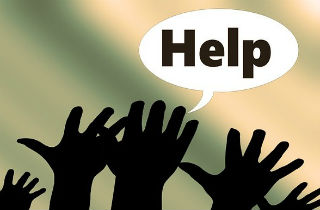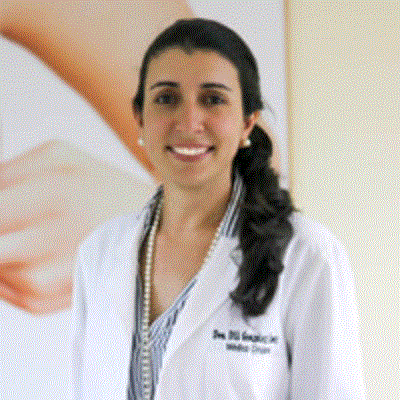A drug problem is a medical issue
Are you or someone close to you facing an opiate addiction problem?
KNOW THIS: A drug problem is a medical condition. It is nothing to be ashamed of. Help is available. Opiate addiction treatments are effective AND based in science.
In this article, we address the steps you can take for getting help, the types of treatments that work, and and how to help cope with someone else’s opiate addiction. At the end, we invite your additional questions. In fact, we try to respond to all real life questions with a personal and prompt response.
Helping an opiate addict quit
Addiction is a chronic brain disease that affects all areas of a persons life and behavior. Therefore, reaching a sober, drug-free life can take a lot of time and energy.
Q: So, what’s the first step to quitting?
A: The first step to facing an addiction is to get over denial.
Every addiction recovery process starts with awareness and acknowledgement of the addiction problem. Little by little, a person passes through denial as we face the risks and possible consequences of our actions. Addiction can impact our:
- health
- relationships
- work, school, or career
- legal situation
- finances
But here’s the thing: it’s got to hurt enough to admit defeat.
If you or a loved one get to this stage, congrats! You’ve passed through the largest barrier to treatment. If you can no longer deny the problem, you’ve won the battle. The rest of the path will be hard, but your willingness to change is the most crucial step to a successful recovery. Once you admit to a problem, what next?
The next step is asking for help. You can benefit from the science of medical intervention. Detox, rehab, and ongoing counseling can help you live a drug-free life! In fact, once you seek professional help, medical treatments can and will get you better. There are millions of people who have come before you. They are living in long term addiction recovery..why not you?
So, to review the process:
STEP 1: Overcome the denial.
STEP 2: Ask for help.
But sometimes, even after we become aware of an opiate addiction, we choose to ignore the problem. In the face of all the evidence, some people cling to denial and still do not admit a problem. This is because denial is a defense mechanism that helps us stay where we are. In fact, we as humans tend to avoid making changes in our established pattern of behavior, unless a problem or pain forces us to re-evaluate.
What do you do when an addict is in denial?
This is a tough place. Then, you need to seek professional help and guidance for yourself. The CRAFT Model of family training can be very helpful, as well as individual or family counseling with a licensed clinical psychologist who has experience with addiction. Getting help for yourself can teach you how to:
- stay safe around an addict
- bring up a conversation about recovery at the right time
- understand addiction as a family issue
- understand addiction as a brain disorder
- set boundaries
If your loved one is not ready or willing to enter treatment…do not give up hope. Instead, channel your efforts into learning how to live your life in peace. You can love an opiate addict, but you don’t need to suffer with them.
Helping an opiate addict friend or family member
If you have a friend, family member, or a loved one whose opiate problem is obvious, it may be time to do something about it! What might appropriate action look like? A brief intervention – when done correctly and at the right time – can help a loved one choose to enter treatment.
An intervention is a process done by family and friends in consultation with a doctor, licensed drug counselor, or professional interventionist. During the intervention, the group will meet together with the opiate addicted person to inform and educate him/her about the consequences of addiction. The most important goal of an intervention is motivate the addict to accept treatment. The brief intervention is a conversation with several goals such as:
- Educating the addict about the ways their destructive behavior affects them personally, and others around them.
- Offering a structured treatment plan consisted of specific steps, goals and guidelines.
- Providing possible outcomes in case a loved one refuses to accept treatment.
If you need help along the way, please CALL 877-736-9802. We understand addiction. Our compassionate operators are available to talk you through your loved one’s case…day or night.
Main treatments for opiate addiction
So, let’s assume that your loved one has accepted help. They are ready for treatment.
What next? How is opiate addiction treated?
When an opiate addict decides it’s time to change, here is how treatment usually unfolds:
1. A medical professional such as
- A Licensed Clinical Psychologist
- A Medical Doctor who specializes in addiction
- A Psychiatrist
…will facilitate a conversation with the opiate addict. The idea is to assess and evaluate the addiction to create a treatment plan. In order to establish appropriate treatment plan, the medical supervisor will ask about the particular drug(s) and the amount of drugs abused, determine the health condition and history of addictive behavior of the individual. The process usually includes a standard interview, a physical exam, and drug testing.
According to information gathered in this first session, the medical supervisor will create an individualized treatment plan that fits the person’s needs. Changes in this plan can be made when necessary. Depending on the doctor estimation, the patient may be switched to an alternative opioid or simply be taken off of all opiates at once.
2. If long term abstinence is the goal, supervised detoxification comes next. However, detox is just the beginning of a long process. When people come off opiates, they experience a variety of uncomfortable withdrawal symptoms which can be so intense that they cause relapse. This is the reason why a medially assisted detox provides supportive care. The greatest benefit is is the chance to manage withdrawal symptoms in a sober, recovery-oriented environment…with medical assistance and 24-7 care. Medical detox addresses symptoms to minimize their intensity and severity as they occur.
3. Medication Assisted Treatment is then used to help stabilize brain chemistry, thus increase your chances of staying sober. There are several medications that doctors prescribe during an opiate medical treatment to prevent relapse. The treatment of opiate addiction is usually accompanied by the following medications:
- Methadone – to help reduce cravings, ease withdrawal symptoms, and prevent relapse.
- Buprenorphine – to help prevent drug abuse for the purpose of getting high.
- Naltrexone – to help prevent opiate drug abuse.
4. Talk therapy then digs into the core issues that drive drug use. We are each unique. But, we often use drugs for the same reasons: to avoid emotional pain or to cope with what’s in front of us. Therapy work in group and individual sessions helps us find what’s common about drug use and then encourages us to adopt new coping mechanisms. When combined with Medication Assisted Treatment, ongoing counseling for 1-2 years during and after rehab has been shown to have positive treatment outcomes.
5. Treatment requires aftercare. That means that when a formal treatment program ends, the work continues. A person in early recovery will require a clear plan for how to transition back into life without using drugs. Often, the plan incorporates at least a few of the following
- Ongoing counseling
- Sober living housing
- Support group attendance
- Treatment alumni activities
To learn more about treatment options, give us a call at 877-736-9802. We understand addiction as a medical condition. We’ll walk you through the medical treatment.
Self help for opiate addiction a good idea?
Opiate dependency is one of the leading factors to relapse. When your body becomes used to having opiates present in your system, it takes up to 7-10 days for the body to go through withdrawal. Some symptoms of withdrawal can persist for weeks or months after last use and are called “Post Acute Withdrawal Symptoms” (PAWS). Many people experience mood disorders, sleeping problems, and cravings well beyond the initial period of withdrawal.
So, it is recommended that you stop using opiates on your own?
Not really.
Medical professionals recommend that you seek medical help during withdrawal. You can receive treatments for symptoms as they occur, as well as psychological and emotional support. The process can be humane. Why do it alone?
If you stop taking opiates cold turkey on your own, you risk experiencing a strong, unpleasant, and adverse reaction(s). While the symptoms are seldome life threatening, they can be highly uncomfortable. What can you expect when trying to go through withdrawal on your own? Main symptoms of opiate withdrawal include:
- difficulty sleeping
- increased heart rate and breathing
- muscle cramps
- nausea and vomiting
- sweating or high temperature
Some people prefer a slow and gradual taper off of opiates. This will limit the intensity of withdrawal symptoms. However, it’s best to withdraw from opiates in a controlled and medical environment because most cases of self-regulated tapering end in a full relapse.
Another thing to be prepared for is dealing with dehydration due to vomiting and diarrhea (common symptoms of opiate withdrawal). Many people can end up in a hospital due to dehydration when quitting opiates on their own. Drinking plenty of fluids during withdrawal is very important, so do not forget to keep yourself hydrated!
Get help for opiate addiction
If you are looking for a quick help with opiate addiction you can always contact the following helplines:
- Drug Hotline 877-736-9802
- National Clearinghouse for Alcohol and Drug Information (NCADI) 800-729-6686
- National Council on Alcoholism and Drug Dependence Hope Line 800-475-HOPE (4673)
- National Drug and Alcohol Treatment Referral Service 800-622-4357
- National Institute on Drug Abuse- Drug and Treatment Information 800-662-4357
- National Suicide Prevention Helpline 800-273-TALK (8255) or 800-SUICIDE (784-2433)
- Substance Abuse Helpline is available 24/7 at 800-923-4327
- Relapse Prevention Hotline 800-RELAPSE (735-2773)
When wondering who to contact with in order to begin the process of opiate addiction treatment? Here are some suggestions:
- Contact a doctor or a physician to get the best references for addiction treatment centers that are near your living area.
- Check different types of treatment programs and their requirements, so you can choose which one best suits your needs.
- Look for support groups that will be part of your treatment program.
- Search for detox clinics.
- Try to find contacts from the most competent and experienced clinical psychologists.
Getting an opiate addict help questions
If you still have any questions about helping an opiate addict after reading this article, feel free to post them below. We will try to get back to you with a personal answer as soon as possible, or we will refer you to someone who can help.










Related Posts